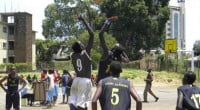Election results and the Hizmet movement

Date posted: April 5, 2014
İHSAN YILMAZ
Unlike the perception that Prime Minister Recep Tayyip Erdoğan tried to create, with the help of tremendous media power, the contention in the run-up to the elections was never between the ruling Justice and Development Party (AKP) and the Hizmet movement (or the so-called foreign forces that colluded with it).
The race was between Erdoğan’s ambition to emerge as the only leader and Turkey’s democratic mission. The matter went beyond mere corruption claims. Indeed, the tension and authoritarian ambitions had not started to build with the corruption allegations.
In retrospect, we can make the following observations: until 2011 or 2012, Erdoğan had used Turkey’s bid to join the European Union, the democratization process, reforms, etc., as leverage against the Kemalist bureaucratic oligarchy and to eliminate the obstacles in his path. In this way, he thwarted the bureaucratic oligarchy and military tutelage. He consolidated his power. Since 2010, there have been three major developments that betray Erdoğan’s antidemocratic tendencies. First, the Constitutional Court was overhauled in line with the constitutional amendments voted “yes” in the referendum of 2011. Previously, every party of political Islam had been shut down, and the AKP, being the last of its kind, had barely dodged an attempt to close it.
When the referendum of 2011 made it impossible for the Constitutional Court to shut down political parties, Erdoğan was spared one of the checks and balances against him. Second, the legal actions against Ergenekon — a clandestine organization nested within the state, trying to overthrow or manipulate the democratically elected government — and Balyoz (Sledgehammer) coup plot — devised in 2003 with the aim of unseating the AKP through violent acts — largely eliminated Erdoğan’s second major fear — that of being overthrown by the military. Third, in the last general election, Erdoğan secured 50 percent of the national vote, a historic record, although that was his party’s third term in office, and there has been no serious challenge from any opposition party in the last 10 years.
Thus, Erdoğan started to drag his feet on the EU process, although a minister who was warm to the idea of joining the EU was appointed as EU minister and there was no longer the threat of former French President Nicholas Sarkozy’s meddling in the process. Burhan Kuzu, a leading AKP official, blasted the EU progress report during a live TV broadcast. Erdoğan frequently cited the Shanghai Cooperation Organization (SCO) as an alternative to the EU. The debate on the presidential system began, and Kuzu referred to US President Barack Obama as “poor Obama” because he had to consult the US Congress about his actions. The prime minister’s chief adviser, Yiğit Bulut, said, “There are two and a half leaders in the world: one is Erdoğan, the other is Vladimir Putin and the half is Obama.” According to the presidential system proposed by the AKP, the judiciary and legislature would be subordinated to one leader.
Meanwhile, Erdoğan continued to embolden his control over media outlets. They were intimidated with heavy tax fines, as in the case of the Doğan media group. Alternatively, certain pro-government businessmen were forced to make a common fund to buy certain media outlets, such as the Sabah newspaper and ATV TV channel, to which the brother of Erdoğan’s son-in-law was then appointed boss, and these media outlets were turned into staunch propaganda tools for Erdoğan. The English-language Sabah Daily, which has recently begun publication, is another member of this camp. Or, as in the case of the Akşam newspaper, a former AKP deputy was appointed as editor-in-chief to reshuffle employees and columnists and make the paper fully pro-government. Then, as in the case of the Habertürk newspaper and Habertürk TV, a government commissar (Fatih Altaylı) was appointed head of the media group, which was weak against the government due to its business operations in the mining and energy sectors. The opposition became weaker and moved mainly to the use of social media. There are few groups that have remained undaunted by this carrot-and-stick approach. For Erdoğan, the most dangerous was the Hizmet movement, which directly and effectively appealed to Erdoğan’s supporters.
It had neither tax problems nor business to transact with the state. It could act in an independent and objective manner. Erdoğan threatened to shut down the dershanes (exam preparatory schools) run by the Hizmet movement in an effort to make this group surrender to his will, but he was surprised to see that the Hizmet movement was not eager to surrender. This further angered him, and he started to demonize the Hizmet movement. Moreover, by the tactic of pretending to be the victim of unfair attacks — which he had successfully employed during the Gezi Park protests — he parroted that the Hizmet movement was trying to overthrow his government in collaboration with external forces that are jealous of his successful domestic and foreign policies and, apparently, he persuaded his supporters. Yet, this is a Pyrrhic victory. The country has been considerably polarized, and it is not easy to govern. About 55-57 percent of the nation hate him. The only option for Erdoğan is to grow more and more authoritarian.
However, his electoral support is in decline. His share of the vote was 50 percent in 2011. There has been a 7 percent decrease. For the 43 percent of voters who don’t care about corruption but opted for economy and stability, he will have to run economic wonders, as the internal and external dynamics do not favor the Turkish economy.
Source: Todays Zaman , April 2, 2014
Tags: Defamation of Hizmet | Democracy | Freedoms | Hizmet and politics | Hizmet-inspired schools | Turkey |
























